[ad_1]
AIRE pavilion by P + S estudio de arquitectura
On the occasion of the Urban Architecture Festival TAC! 2022, P+S Estudio de Arquitectura has designed a temporary pavilion in the city of Granada, Spain. The project, called AIRE, builds on the notion of the ephemeral, fragile and immaterial, taking the form of a fabric tent that rises in the middle of a scaffolding grid, thus alluding to the image of something unfinished or under construction. In this way, the project seeks to illuminate the essential and the impermanent of architecture, creating an interstitial space with fragile boundaries, while also generating an atmosphere composed of two of the most elemental materials of architecture – air and light.
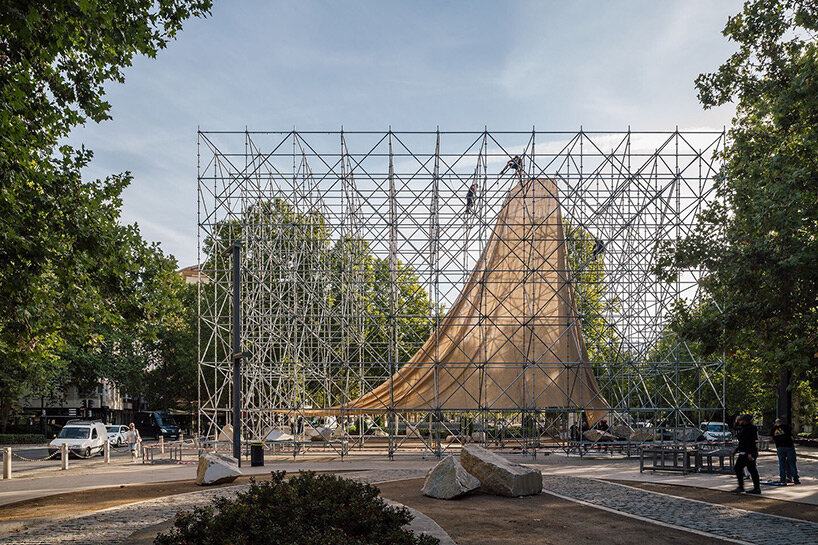
the AIRE pavilion takes the form of a fabric tent rising in the middle of a scaffolding grid | all images courtesy of Imagen Subliminal
promoting transformation and adaptability
Essentially, AIRE by P+S Estudio de Arquitectura (find more here) promotes the transformation and adaptability of the space without requiring any greater intervention than the opening or closing of the fragile boundary that defines it.
The structure is solved through material strategies aimed at creating an exercise in synthesis, constructive veracity, and sustainability. The scaffolding system reflects the industrial systematization that, while dating back to the beginnings of the architectural tradition, today represents modularity and globalization in construction, but also transience and apparent fragility that will disappear when the work is completed. This system dissolves the supporting structure of the pavilion: a resistant fabric connected to a lighter one, a shell of Hessian fabric, a symbol of locality, craftsmanship, shadow, tradition, and popular knowledge, the recognizable, the everyday in the region. Finally, a group of boulders from the Sierra Elvira provides the necessary counterbalance to the structure and new street furniture around the pavilion, linking the intervention with the Plaza del Humilladero.

the scaffolding system reflects the industrial systematization that today represents modularity and globalization in construction
commitment to circular economy and local craftsmanship
The use of these three materials illustrates AIRE ‘s commitment to the circular economy and the value of Granada’s local economy, traditions, and craftsmanship. Once the pavilion is dismantled, the scaffolding will be put to a new use. The same applies to the gravel stones, which will return to their original quarry. The locally made Hessian fabric, will also have a second life as it is widely used in the city for shade and can easily be moved to another public place in Granada.
In this way, AIRE, as its etymological origin indicates, ‘rises’ in search of light and takes the form of a pavilion woven between scaffolding and hessian fabric, creating a new scenario of multiple, open, indeterminate and flexible encounters that will allow new relationships and uses in the Plaza del Humilladero in Granada.
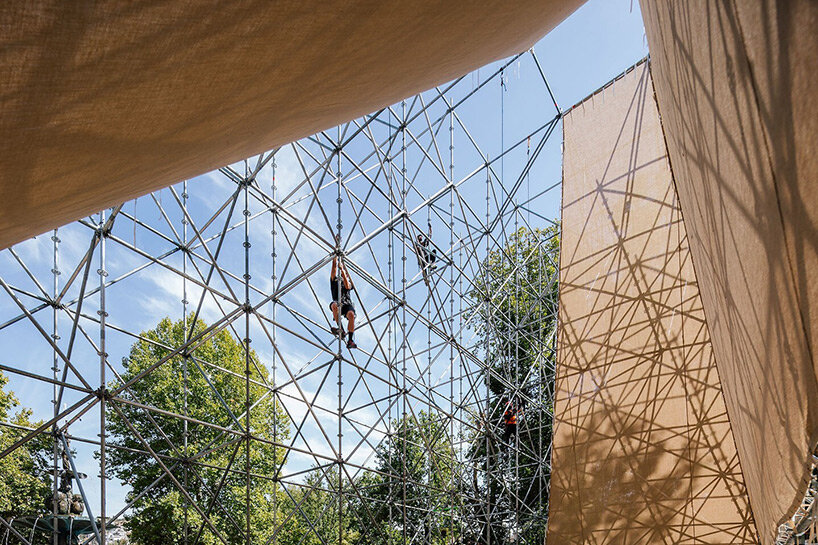
the resistant fabric serves as a symbol of locality, craftsmanship, and tradition
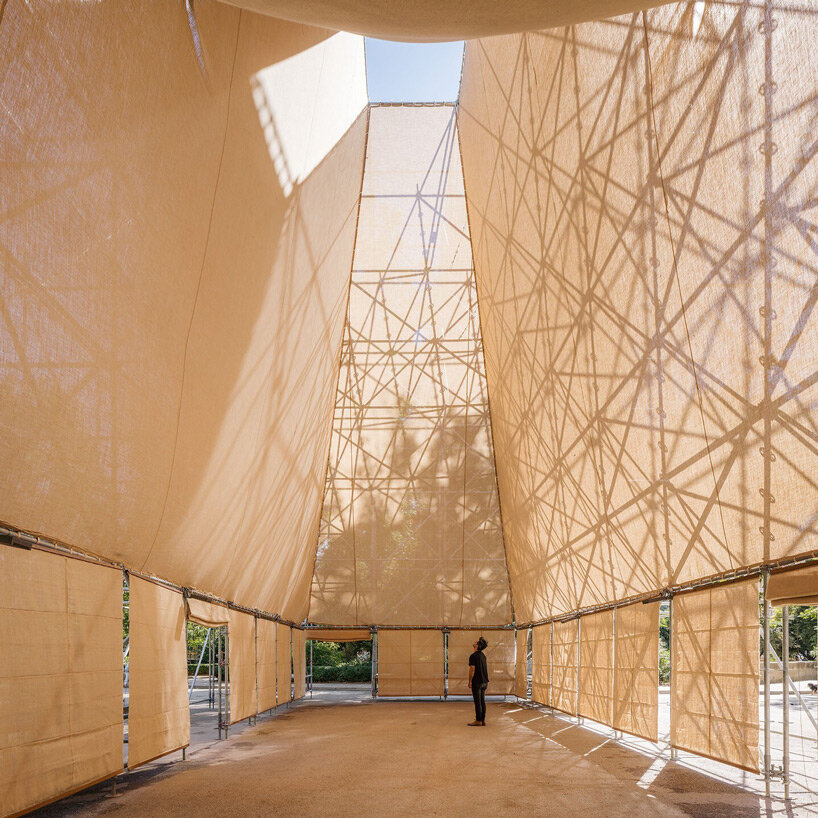
a fragile atmosphere composed of air and light
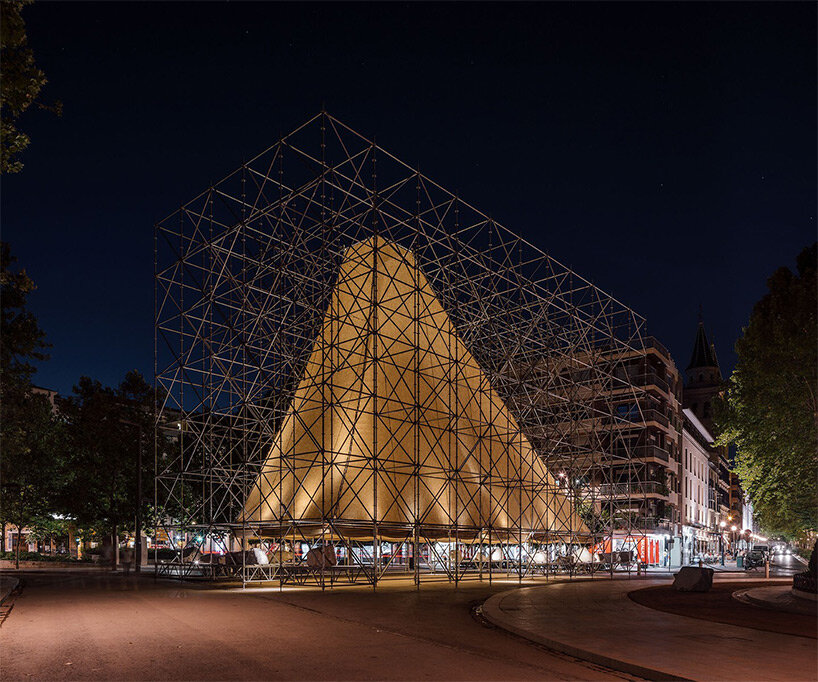
night view of the AIRE pavilion
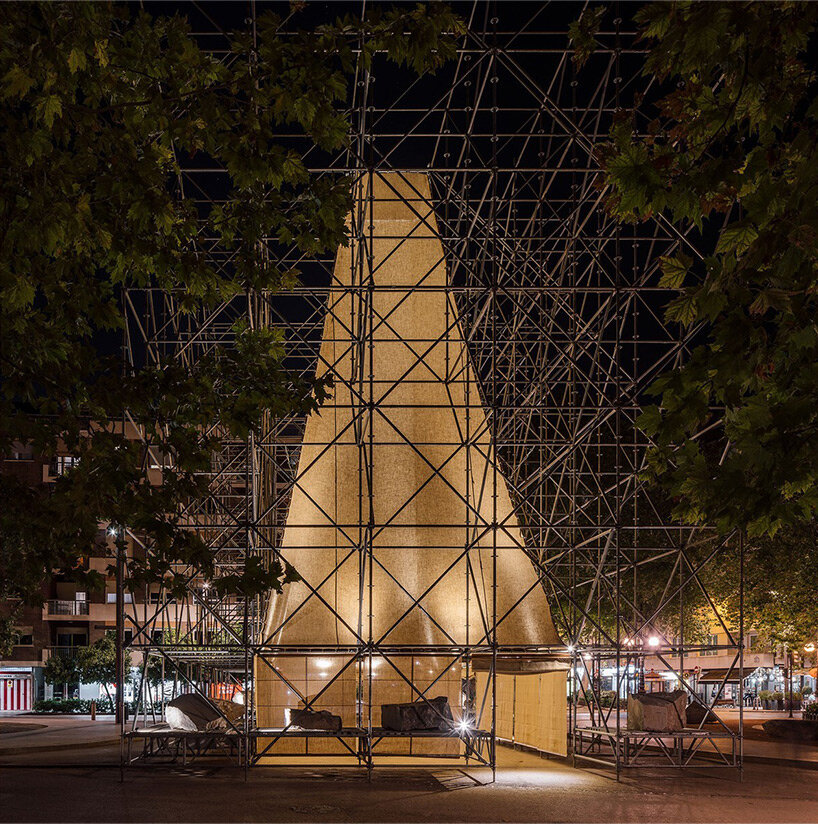
project info:
name: AIRE
architects: P + S Estudio de Arquitectura
location: Granada, Spain
event: Urban Architecture Festival TAC! 2022
myrto katsikopoulou I designboom
dec 26, 2022
[ad_2]
Source link
